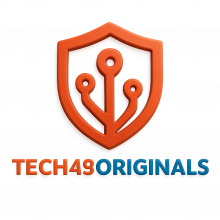
There are 1 Companies in Namibia
that provide Angular Development Services!
Namibia's tech sector is mainly occupied by Chinese companies that outsource for homeland projects, data, and resources. Right now, the country is focusing on green electricity and more internet coverage, which are two pillars that may cause new IT companies to emerge by 2025.
Discover Top IT Companies in Namibia specialized in Angular and other related services. Find the best IT service providers for your projects.
Angular (formerly AngularJS) is a popular open-source web application framework maintained by Google and a community of developers. It's used for building dynamic, single-page web applications (SPAs) and web-based applications in general. Angular provides a structured and organized way to create complex web applications by extending HTML with additional features and enabling the development of interactive, responsive, and maintainable front-end web interfaces.
Handpicked companies • No obligation to hire • 100% risk-free
Explore Top Angular Development Companies in Namibia
Tech49Originals is a Namibian technology company offering scalable solutions in cybersecurity, software development, web development, and IT hardware.
Filter Angular Development Companies in Namibia by Cities
Find the right tech company near you or from a specific city. Some of the best companies might be located in smaller cities.
Find more Angular Development companies around the world
TechBehemoths is the world's most advanced and user-friendly platform to match IT Companies with real clients without hustle.
The IT Industry in Namibia: General Portrait
The IT Industry in Namibia: General Portrait
Along the southwest African coast, the Namibian desert covers the country with the same name and places it into a position where tech or IT would have never emerged. But with Chinese investments and national will to face the digital era, Namibia aims towards the most distant goal humanity has in 2021 - space. On June 8, 2021, the Namibian government released the first-ever space, science, and tech policy to empower social and economic changes in the country, available for 2021-2030.
Why You Should Work With Namibia's IT Companies
There is probably no logical reason why somewhere from the northern hemisphere would work with an IT company from Namibia. But, the reality shows that the country's potential in the Information and Technology sector is still undervalued, and investments should be made to reveal the country's real capacities. The country has a little over 2.82M people, which speaks of a low population density. Despite this, Namibia's literacy is one of the highest in Africa: 91.5%, and combined with its geographical location, it could become one of the region's leading tech centres.
What You Should Pay Attention to When Working With Namibian IT Companies
Namibia is a great safari destination, but so far, that's probably one of the few reasons why you would visit this country. Even though with high human potential, Namibia's IT infrastructure does not give any hope of fast rehabilitation any time soon. Businesses tempted to work with a Namibian tech company don't have too many choices since there are probably no experienced or talented professionals to face an international project that would bring lots of benefits.
How Reliable Are Namibian IT Companies
The country's tech sector is mainly occupied by Chinese companies that outsource for homeland projects, data, and resources. Due to the lack of sustainability, the ICT sector in Namibia is underdeveloped and cannot be rated as reliable or unreliable. Until further development, the country is still a mystery for the majority of the business world.
How Does the Namibian IT Industry Relate to the Neighboring Countries?
The only and most advanced competitor Namibia has, and should take as a developing model in South Africa. Its proximity will eventually allow the country's modernization and connection to a wider ICT diversification. Angola or Botswana have little experience and will to develop ICT in the region, and are also not eager to share the little experience they have with neighboring countries. In 2021, we witnessed a diverse but also divided Africa that had other priorities and issues than tech industry development and cooperation in this field, but in 2025, it is investing in ICT, digital policies, and tech innovation.
ICT in Namibia in 2025 - Perspectives and Challenges
As the electricity penetration rate in Namibia increases, 2022 came with the first development chance for the ICT sector in Namibia. Focus on green electricity and more internet coverage for Namibia are two pillars that may cause new IT companies to emerge earliest by 2025. Meanwhile, the country focuses on other challenges, such as access to water, poverty reduction, and better living conditions.
What is Angular and what are its benefits for your projects?
Angular (formerly AngularJS) is a popular open-source web application framework maintained by Google and a community of developers. It's used for building dynamic, single-page web applications (SPAs) and web-based applications in general. Angular provides a structured and organized way to create complex web applications by extending HTML with additional features and enabling the development of interactive, responsive, and maintainable front-end web interfaces. Here are some key aspects and concepts of Angular:
-
Component-Based Architecture
-
Templates
-
Directives
-
Dependency Injection
-
Services
-
Routing
-
Observable and RxJS
-
Modules
-
Testing
-
Cross-Platform
Angular's structured approach, strong tooling, and vibrant ecosystem of libraries and extensions make it a powerful framework for building modern web applications. It is particularly well-suited for large and complex projects where maintainability and scalability are crucial.
Companies may choose Angular over other front-end frameworks for their projects for a variety of reasons, depending on their specific needs and priorities.
-
Google Backing: Angular is developed and maintained by Google. This association often gives companies confidence in its long-term support, stability, and continuous improvement. Google's involvement is seen as a sign of reliability and commitment to the framework.
-
Mature and Established: Angular has been around for a while and has a strong track record of being used successfully in large-scale enterprise projects. It has a well-defined architecture and best practices, which can be beneficial for maintaining and scaling applications over time.
-
TypeScript Support: Angular is built with TypeScript, a statically-typed superset of JavaScript. TypeScript provides better tooling, code maintainability, and catches errors at compile time, which can reduce bugs and enhance code quality, making it attractive to companies that prioritize robust code.
-
Full-Featured Framework: Angular provides a comprehensive set of tools, libraries, and features out of the box, including routing, form handling, HTTP client, and more. This can save development time and effort compared to integrating multiple third-party libraries in other frameworks.
-
Two-Way Data Binding: Angular offers powerful two-way data binding, which allows for automatic synchronization between the data model and the view. This feature can make it easier to develop interactive and responsive user interfaces.
-
Large and Active Community: Angular has a large and active community of developers and a wealth of resources, including documentation, tutorials, and third-party libraries. This can be beneficial for finding solutions to common problems and getting support when needed.
-
Enterprise-Ready: Angular provides features like dependency injection, modularity through modules, and a strong emphasis on testability. These characteristics are well-suited for building robust and maintainable enterprise-level applications.
-
Strict Coding Standards: Angular enforces a set of coding standards and best practices, which can lead to more consistent and readable code. This can be important for companies with multiple developers working on the same codebase.
-
Cross-Platform Development: Angular can be used for building both web and mobile applications. Companies looking to develop applications for multiple platforms may choose Angular for its ability to share code between web and mobile apps using technologies like NativeScript or Ionic.
-
Integration with Backend Technologies: Angular can easily integrate with various backend technologies and APIs. This makes it suitable for projects where the front end needs to communicate with different types of server-side applications.
-
Security Features: Angular provides built-in security mechanisms to help prevent common web vulnerabilities like Cross-Site Scripting (XSS) and Cross-Site Request Forgery (CSRF). This can be crucial for projects with high security requirements.
-
Ecosystem and Tooling: Angular has a rich ecosystem of tools, extensions, and IDE support, including Angular CLI for project setup and management. This can streamline development workflows and improve productivity.
Ultimately, the choice of Angular or any other framework depends on the specific project requirements, the development team's expertise, and the company's long-term goals. Companies evaluate various factors to determine which framework aligns best with their needs, resources, and priorities.
